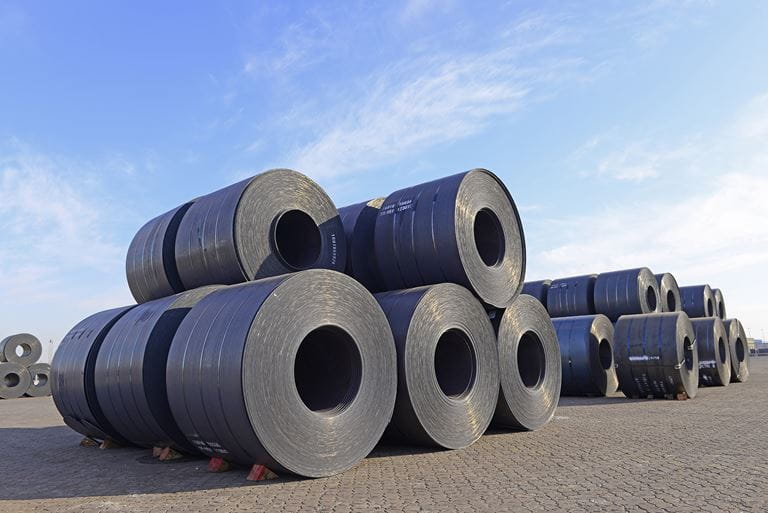
EU’s ‘other-country’ HRC quota causes stir, Asia benefits
The Q2 allocation of 923,594 tonnes, which only opened on 1 April, has already been filled, with 11t still awaiting allocation as of 4 April, according to EU TARIC system data. In Q1, that same-tonnage “other country” quota was also exhausted by 3 January, while the 933,743t limit in Q4 2023 was fulfilled on 1 October.
The main origins represented in the “other country” category are Japan, Vietnam, Taiwan, Egypt, Brazil and Saudi Arabia. In 2023, all of these countries bar Brazil increased their hot rolled flat products shipments to the EU.
Imports of HS code heading 7208 products – which also include plate, which is classified separately from HRC in the EU’s safeguard quota category system – rose by 13% on-year from Japan to 1.32 million tonnes. Supply from Vietnam soared 181% to 1.13mt and intake from Taiwan grew 24% to 1.05mt, according to Eurostat data.
Although imports from Brazil halved to just over 200,000t, intake from Egypt jumped 41% to 749,665t and from Saudi Arabia by 11% to 103,995t.
The EU’s overall imports of 7208 products rose 10% in 2023 to 10.3mt.
Swiss mill Stahl Gerlafingen has lambasted the EU’s definition of its Category 1 safeguard quota – which covers HRC – for including wide flat steel, sometimes referred to as universal flats. This impacts the merchant bar produced by the mill and means it cannot clear product through EU Customs quickly enough, before the quota is exhausted by major overseas suppliers (see separate story). As a result, the firm is closing its merchant bar mill.
The Swiss government wrote to the EU Commission in February reiterating its request to terminate EU safeguard measures on steel by 30 June. “The measures are restricting traditional trade flows between Switzerland and the EU with the situation having continued to aggravate since summer 2023,” wrote the Mission of Switzerland to the European Union.
“Specifically, the residual tariff-rate quota (TRQ) for product category 1 – Non Alloy and Other Alloy Hot Rolled Sheets and Strips – was exhausted on the very first day in the previous … as well as the current [March-2024] quarter … Faced with a safeguard duty of 25%, a heavy financial burden that neither Swiss exporters nor their EU customers can bear, Swiss exporters have not been able to supply their EU customers. According to information from the Swiss industry, the situation is unlikely to improve over the coming months,” the letter continues.
In case the measure is prolonged, there should be a modification in the allocation and management of tariff-rate quotas to avoid crowding out traditional trade flows between the EU and Switzerland, the Mission adds.
There has been some talk of large Indian HRC tonnages arriving in Europe soon, which could also exhaust that country’s specific quota. Europe has emerged as a crucial market for Indian suppliers in recent years. However, as of 4 April, there were still 229,716t remaining of India’s 294,662t Q2 HRC quota, with 1,704t awaiting allocation. More material is nevertheless en route.
Adam Smith Poland


HRC price declines slow down across Europe; buyers continue to postpone restocking
Buyers continued to avoid big purchases, only booking small tonnages of HRC for immediate needs, Fastmarkets heard.
Muted demand from end-user sectors and lack of clarity on future price direction were limiting activity in the spot market, sources said.
Producers had short order books, and some of them could still offer May-delivery HRC, Fastmarkets heard.
“Some mills are offering June delivery, but May delivery is still widely available,” a steel service center source in Germany said.
Offers from integrated mills in Northern Europe were heard at €660-685 ($713-740) per tonne ex-works on Thursday, but the high end of the range was not considered workable by buyers.
A booking of HRC from Central Europe to Germany was heard at €680 per tonne delivered in the week to Thursday.
Buyer sources estimated achievable HRC prices in Northern Europe at €650-660 per tonne ex-works.
“If you go to a mill and say you want to book 1,000 tonnes of HRC, the price can even be €650 [per tonne] delivered easily,” a buyer source said. “But we don’t see such volumes traded in the spot market — it’s 100-200 tonnes here and there; buyers can live hand-to-mouth with such end-user demand.”
Fastmarkets calculated its daily steel hot-rolled coil index domestic, exw Northern Europe at €660.21 per tonne on Thursday, down by €0.62 per tonne from €660.83 per tonne on Wednesday.
The index was down by €3.54 per tonne week on week and by €54.79 per tonne month on month.
The pace of price declines has slowed down in the past week, sources said, adding that rock bottom could be close.
“It looks like producers are preparing to cut output rather than keep cutting prices and lose money,” a trader in the Benelux area told Fastmarkets. “Nobody has made an official move yet, but I think we can expect some [announcements] in Dusseldorf [at the Tube and Wire trade fair].”
In Southern Europe, Fastmarkets’ daily steel hot-rolled coil index domestic, exw Italy was calculated at €636.67 per tonne on Thursday, down by €4.16 per tonne from €640.83 per tonne on Wednesday.
The index was down by €8.33 per tonne week on week and by €57.33 per tonne month on month.
Quiet conditions prevailed in the Italian market, with no restocking heard.
“Stocks are sufficient, considering demand,” a buyer in Italy said.
HRC with five- to six-week lead times from one local supplier was heard offered at €650-660 per tonne delivered (€640-650 per tonne ex-works).
Buyers estimated achievable prices at €630-640 per tonne ex-works.
Some sources suggested that prices for HRC could bottom out at €620-630 per tonne delivered.
Offers for import coil were rare in the week to Thursday.
HRC offers from Vietnam to Southern Europe were reported around €570-580 per tonne CFR for June shipment.
HRC from one Turkish supplier was offered to Italy at €600 per tonne CFR, including anti-dumping duty, sources said.
No fresh bookings were reported.
Buyers wanted to see how many tonnes of HRC would be cleared by EU customs before making new purchases, Fastmarkets understands.
The EU’s “other countries” import quota for April-June was already filled just two days after the new quota period started, Fastmarkets reported.
India’s HRC quota for the second quarter was filling at a slower pace than expected, with around 20% of the 294,662-tonne allocation for the period filled on Wednesday. This was due to delays in deliveries amid the Suez Canal shipping crisis, sources said.
“Vessels [with HRC] have to go around the Cape of Good Hope, so there are delays,” a source in Italy said. “There is plenty of India-origin HRC en route to Europe.”
Published by: Julia Bolotova


Bekaert invests in clean energy for Italian plant
Belgian wire specialist Bekaert is investing in clean energy in Italy. It has signed a 12-year Power Purchase Agreement (PPA) for renewable electricity with Edison Next, part of the Edison Group, Kallanish notes.
Edison will finance and build a photovoltaic plant at Bekaert’s facility in the province of Cagliari, Sardinia, with a total power of 6.1 megawatts, scheduled for commissioning in 2025.
This will cover over 20% of the Cagliari plant’s energy requirements, producing over 11.2 gigawatt-hours a year and helping to cut the plant’s emissions. The solar project at Bekaert’s Sardinia plant “incorporates trackers that follow the path of the sun to optimise renewable energy production … Photovoltaic is a mature technology that, backed by the PPA formula, represents a primary fundamental element for energy transition by companies,” Bekaert and Edison Next explain in a joint note.
Bekaert intends to cut greenhouse gas emissions by 46.2% by 2030, and invest in solar plants in other countries.
In its 2023 financial report, Bekaert said economic uncertainty continues and several end-markets remain challenging. However, trading in 2024 has started well across the majority of the firm’s business units, with modest sales growth and stable margins forecast for this year (see Kallanish 5 March).
Natalia Capra France

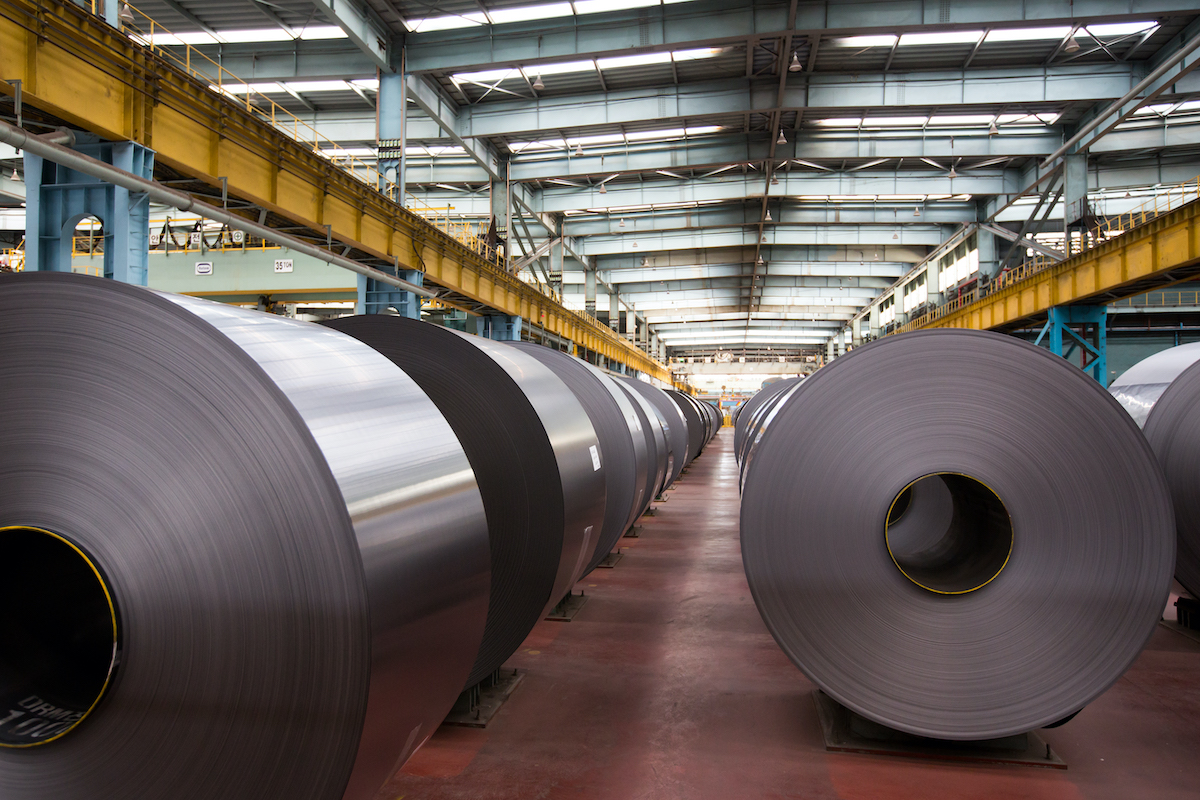
Ascometal must deliver stock to gain time: unions
French trade unions have launched an urgent appeal to the French government to take immediate and decisive action to save Ascometal.
The company has been declared insolvent after the sale of its units to Italian long steel producer Acciaierie Venete was terminated last month (see Kallanish 28 March).
“Ascometal has about 14,000 tonnes of finished product in stock. It is complicated to ship this because transport needs to be paid and the company has no more money,” a source close to the firm says. He adds that to give it some financial breathing room, the firm will need to ship at least 6,000t of first-choice material very quickly.
“The second objective is to be able to restart the steelworks as quickly as possible because we have been asked to produce 11,000t,” the CFDT union says in a note. The company needs to urgently deliver to certain customers, it adds.
The proposed sale to Acciaierie Venete, announced in December last year, was to include the Hagondange facility in the Moselle region, Custines in Meurthe-et-Moselle, and the Le Marais plant in the Loire region, as well as Ascometal’s CREAS research centre.
Another source close to the dossier believes different buyers may be interested in some of Ascometal’s facilities but it will be challenging to sell all the facilities to only one buyer. Following the termination of the negotiations with Venete, Ascometal started judicial reorganisation proceedings – “procédures de redressement judiciaire” – for each of its units. A public tender will be held to find a buyer in the coming weeks.
Natalia Capra France


Reliance acquires US steel service center Mid-West Materials
Reliance, one of North America’s largest metals service center companies, has expanded its footprint in Ohio by acquiring all the outstanding equity interests of flat-rolled steel service center Mid-West Materials, the companies said April 2.
“The addition of Mid-West Materials increases our flat-rolled presence in the critical markets in and around Ohio, which primarily service North American OEMs,” Reliance CEO Karla Lewis said in a statement. “Mid-West Materials aligns well with our acquisition criteria of a well-run company that is immediately accretive to our earnings and expands our offerings to customers with modern, high-performance processing capabilities.”
Lewis said Mid-West’s facilities will benefit from Reliance’s scale and “access to capital for investments in value-added processing capabilities and the knowledge base and breadth of expertise throughout our extensive family of companies.”
Mid-West is based in Perry, Ohio. It supplies hot-rolled, high strength hot-rolled, coated and cold-rolled products to the trailer manufacturing, agriculture, metal fabrication and building products markets. Its sales totaled about $87 million in 2023.
The terms of the acquisition were not disclosed.
The Scottsdale, Arizona-based Reliance, formerly named Reliance Steel & Aluminum, operates from over 315 locations in 13 countries. It provides value-added metals processing and distribution services. The company reported net income of $1.34 billion on sales of $14.81 billion in 2023.
In February, Reliance announced the completed acquisition of Cooksey Iron & Metal and the pending acquisition of American Alloy Steel, both metal service centers.
Reliance’s acquisitions come as US steel prices remain at historically elevated levels, though they have fallen from record highs seen in 2021. Platts assessed the daily TSI US hot-rolled coil index at $825/st on an ex-works Indiana basis April 2, according to S&P Global Commodity Insights data.
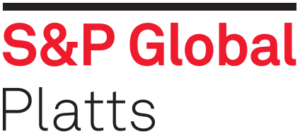

ArcelorMittal Zenica to shut coke plant
ArcelorMittal’s Zenica, Bosnia-based long steelworks plans to close its coke battery as a result of rising costs and reduced steel demand, Kallanish notes.
However, the company will continue to produce steel through the blast furnace route, sourcing coke from external sources, it says.
According to the company, significant maintenance efforts over the past ten years have not been able to extend the coke battery’s life. It has concluded that further upgrades are not feasible and would not meet high environmental standards.
“This is a difficult day for the company, but ArcelorMittal Zenica will make every effort to ensure that the closure of the coke battery has as little impact as possible on the local economy,” says the plant’s chief executive, Nikhil Mehta. “We are committed to stabilising the company’s operations and our goal is to ensure the self-sustainability of our business.”
ArcelorMittal Zenica reported a net loss of BAM 159 million ($88.2m) last year compared with a net profit of BAM 41m in 2022 (see Kallanish passim).
Shipments were at their lowest level for the last 14 years, due to a 12% year-on-year drop in demand, and a 20% increase in the cost of electricity, resulting in additional costs of BAM 4m.
The firm does not expect the market outlook to improve in the coming months.
In January, Zenica resumed production after pausing output at its rolling mills in November, due to weak market conditions (see Kallanish passim).
ArcelorMittal Zenica is the largest producer of long products in the Balkans with a capacity of 700,000 tonnes/year. The basic product range includes rebar in bars and coils, wire rod, mesh and lattice girders.
Svetoslav Abrossimov Bulgaria

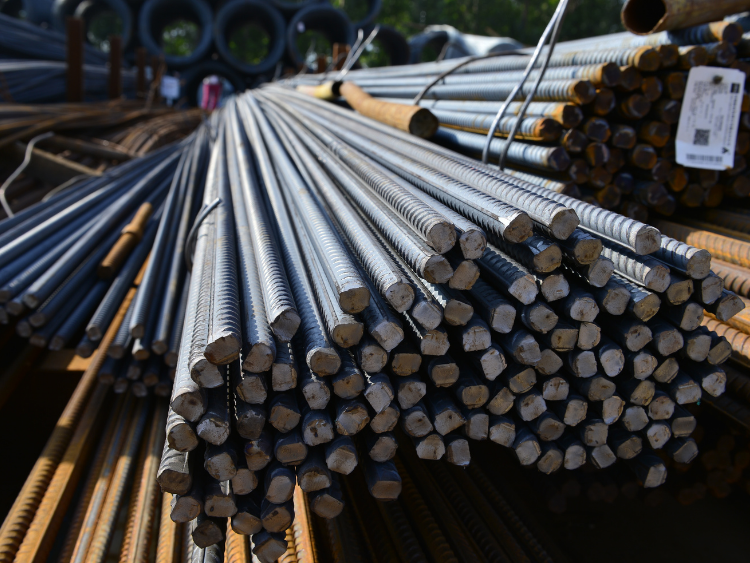
Stahl Gerlafingen closes production line
Stahl Gerlafingen has confirmed its intention to close one of its two rolling lines.
The Swiss maker of long products, a unit of Italy’s Beltrame group, warned of the move earlier (see Kallanish 20 March). Shortly before Easter, its management sent out an announcement stating that the closure of its line for merchant bar and sections is “unavoidable”.
The company bemoans that its merchant bar exports have been de-facto banned by the EU, of which Switzerland is not a member. “The export of wide merchant bar, which used to generate good revenue, has been practically made impossible by the EU since July 2023,” Stahl Gerlafingen says in a statement sent to Kallanish upon request.
Swiss mills are also hurting from high costs for electricity in the country, and especially from record-high grid fees, Stahl Gerlafingen points out. The closure of the production line would mean the loss of 95 of around 600 jobs at the mill.
The closure would not affect the production of rebar, which accounts for two thirds of the mill’s annual output of 700,000 tonnes, and which serves half of the country’s annual demand for rebar.
Christian Koehl Germany

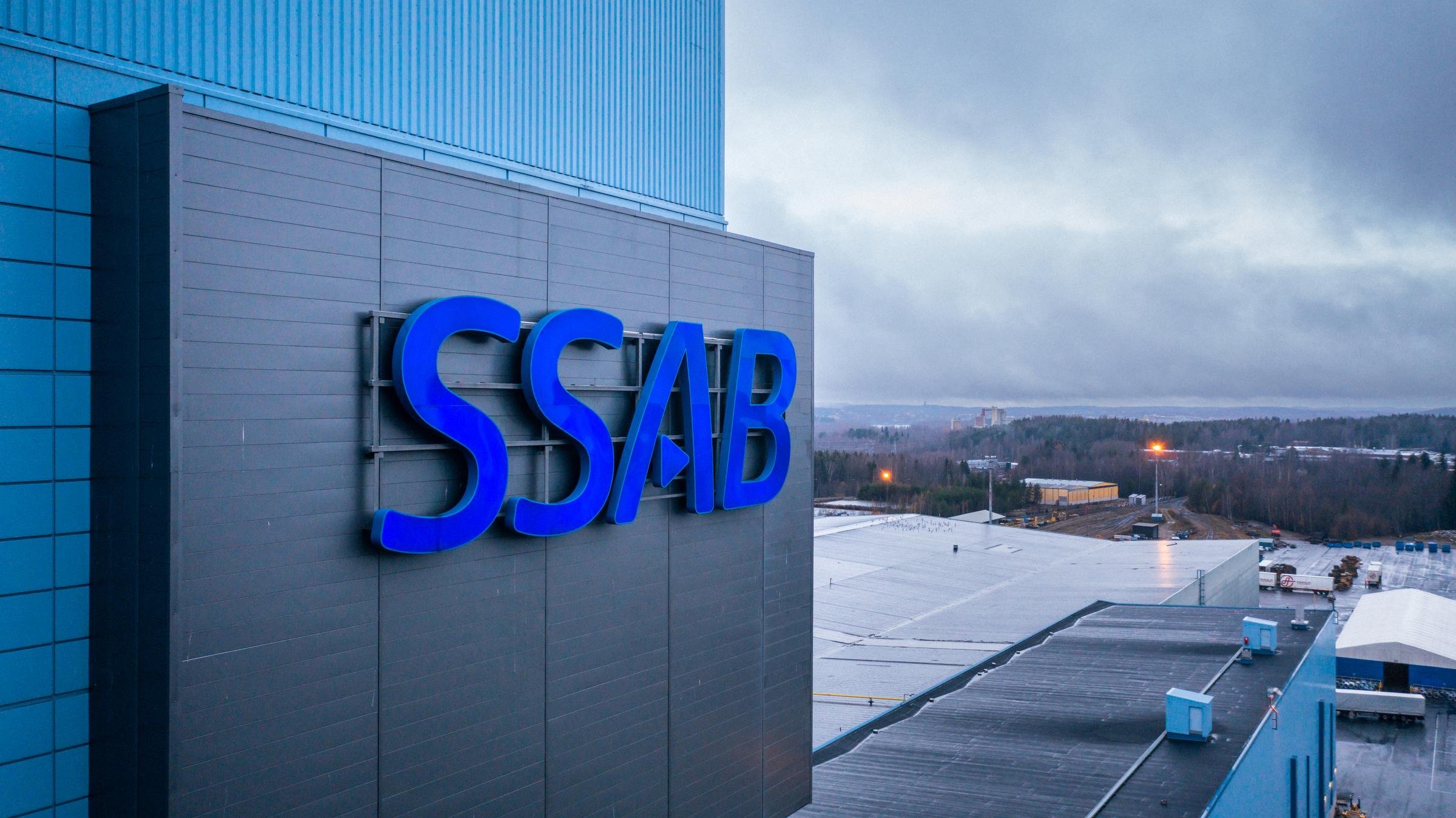
SSAB proceeds with Luleå zero-emission EAF conversion
SSAB says it will proceed with its overall technological transition, involving the construction of a fossil-free electric arc furnace mini-mill in Luleå, Sweden.
The new Luleå mill will have a crude steel capacity of 2.5 million tonnes/year, and consist of two EAFs, advanced secondary metallurgy, a direct strip rolling mill, and a cold rolling complex, Kallanish hears. It will be supplied with a mix of fossil-free sponge iron from the Hybrit demonstration plant in Gällivare and recycled scrap.
The total mini-mill investment is estimated at €4.5 billion ($4.8 billion), including contingencies. By investing in new technologies, SSAB is avoiding investments otherwise required in existing plant and equipment of €2 billion during the next ten years, the company points out. The plan is to fund the investment with own cash flows and within SSAB’s financial targets.
The new mini-mill will have a better cost position with lower fixed costs, higher efficiency, shorter lead times and eliminated CO2 costs, SSAB notes. The mill design includes a production increase of 0.5m t/y, and mix improvement with 1m t/y increase of special and premium steel grades. Startup of the new mill is planned at the end of 2028, with full capacity to be achieved one year later.
SSAB decided in 2023 to transform the Oxelösund mill to fossil-free production, with Luleå now the second step. As a third step, it plans the transformation of the Raahe, Finland-based steelworks.
Meanwhile, LKAB, SSAB’s partner in the Hybrit pilot plant, has bemoaned bureaucratic hurdles potentially delaying production. “The transition in Sweden is still hindered by time-consuming and unforeseeable permitting processes. We have already been forced to postpone scheduling for the Hybrit demonstration plant to late 2027 and there is a great risk of a delay well into 2028,” says LKAB chief executive Jan Moström.
Ideally, another direct reduction plant with Hybrit technology is projected to be built around 2030, to further increase supply of fossil-free sponge iron.
Christian Koehl Germany

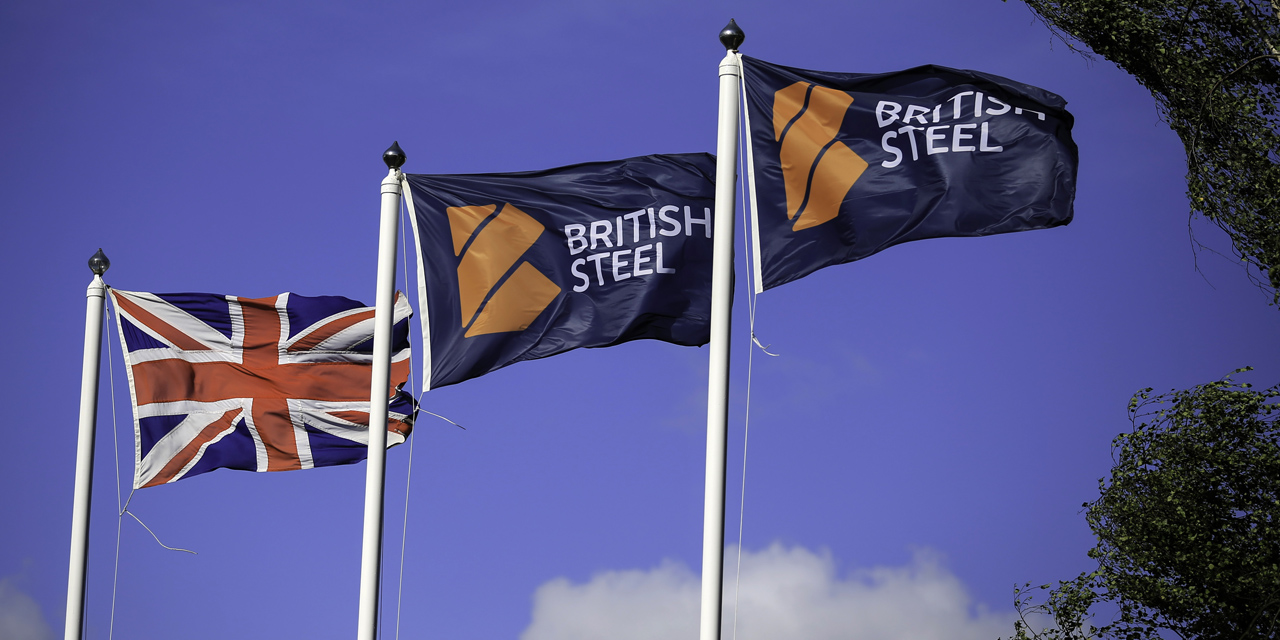
British Steel secures planning permission to install EAF at Teesside plant
The company said its application had been approved by Redcar and Cleveland Borough Council following a detailed consultation period.
British Steel is also awaiting a decision from North Lincolnshire Council regarding its application to build another EAF at its Scunthorpe site.
EAF technology utilizes an electric current to melt scrap steel or iron and produce steel, whereas traditional blast furnaces rely on coke, a carbon-intensive fuel made from coal, to produce steel.
Under the existing proposals, British Steel’s Teesside operations will consist of one 100-mt EAF, one 100-mt ladle furnace, one 100-mt vacuum degasser and two continuous casters, supplying the company’s Teesside Beam Mill and Skinningrove works.
At Scunthorpe, the company is proposing an operation consisting of one 130-mt EAF; two 130-mt ladle furnaces, one 130-mt degasser and two continuous casters.
The company advised that its proposed shift to EAF steelmaking at Teesside and Scunthorpe remains subject to appropriate support from the UK government.
British Steel said it was moving ahead with preparations at both sites, including the undertaking of environmental and technical studies to ensure that its proposals can be delivered at the earliest opportunity while discussions with the UK government progress.
The proposed installation of EAFs in place of the existing blast furnaces at Scunthorpe and Teesside are part of a GBP1.25-billion ($1.57-billion) decarbonization plan unveiled Nov. 6 2023.
Under the schedule put forward by British Steel, the new furnaces could be operational by late 2025 with the company seeking to maintain current operations until a smooth transition to EAF steelmaking can be implemented.
“We are committed to working with the UK Government and need to reach an agreement quickly so we can achieve our ambitious goals, secure thousands of jobs and keep making the steel Britain needs for generations to come,” said British Steel president and CEO Xijun Cao.
British Steel first unveiled its Low-Carbon Roadmap in October 2021 pledging to invest in a range of technologies to deliver net-zero steel by 2050, and significantly reduce its CO2 intensity by 2030 and 2035.


European HRC market slow after holiday break; sources expect prices to slide further
Fastmarkets’ indices were not published on March 29 and April 1 because of the Easter holiday in the UK.
The index was down by €6.25 per tonne week on week and by €54.25 per tonne month on month.
Trading remained slow on Tuesday in Northern Europe, with offers from integrated mills reported at €670-690 per tonne ex-works at lead times of around four to six weeks.
A Benelux-based reroller was offering HRC at €650 per tonne ex-works, but sources said the price could be negotiated for firm bids.
Buyers estimated the tradable level at around €650-670 per tonne ex-works on Tuesday.
“The downtrend [in the HRC market] is not over yet, so no one is really ready to buy [HRC right now],” a buyer in Germany told Fastmarkets.
Sources said there was still room for further price reductions, with the persistent downtrend in global raw materials prices adding to their pessimistic outlook.
“Iron ore prices hit two-year lows [on April 2], with mills [under] constant pressure from buyers to reduce [their finished steel] prices,” a steel service center source said.
Buyers still believed output cuts were inevitable among European flat steel producers and expected some equipment to be taken offline in April and May to balance the market.
Meanwhile, mills continued to hold back from making any official statements regarding reductions in steel output.
In Southern Europe, Fastmarkets’ corresponding daily steel hot-rolled coil index domestic, exw Italy was calculated at €643.75 per tonne on Tuesday, down by €1.25 per tonne from €645.00 per tonne on March 28.
The index was down by €7.92 per tonne week on week and by €64.17 per tonne month on month.
Offers from one local supplier in Italy for May-delivery HRC were reported at €650-660 per tonne delivered, which nets back to €640-650 per tonne ex-works.
Most sources said prices in Italy had yet to hit rock bottom.
“It looks like we are moving toward the €600 [per tonne ex-works] mark,” a buyer source said.
Import offers were limited in Italy on Tuesday, with HRC on offer from Asia at €570-580 per tonne CFR for June-July arrival, sources said.
But Italian buyers were cautious about making new HRC bookings from Japan, Taiwan, Vietnam and South Korea, due to the uncertainty over potential safeguard duties after June 30.
According to European customs statistics, the “other countries” HRC quota for the second quarter of 2024 was already at 80% as of April 1, with 740,890 tonnes of the total 923,594-tonne quarterly allowance already awaiting allocation.
The “other countries” category includes Japan, Vietnam, Taiwan and Egypt.


